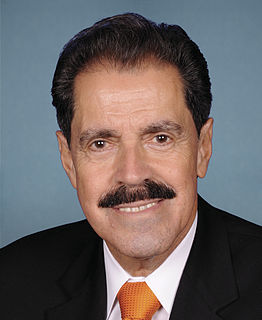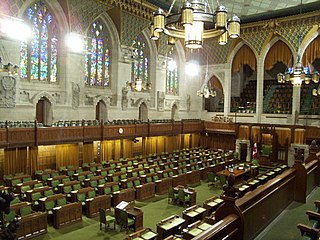
The Statute of Westminster 1931 is an Act of the Parliament of the United Kingdom that sets the basis for the relationship between the Commonwealth realms and the Crown.
The British North America Acts 1867–1975 are a series of Acts of Parliament at the core of the constitution of Canada. They were enacted by the Parliament of the United Kingdom and the Parliament of Canada. In Canada, some of the Acts were amended or repealed by the Constitution Act, 1982. The rest were renamed, in Canada, the Constitution Acts; in the United Kingdom, those Acts that were passed by the British Parliament remain under their original names. The term "British North America" (BNA) refers to the British colonies in North America.

The Twenty-first Amendment to the United States Constitution repealed the Eighteenth Amendment to the United States Constitution, which had mandated nationwide prohibition on alcohol. The Twenty-first Amendment was proposed by the 72nd Congress on February 20, 1933, and was ratified by the requisite number of states on December 5, 1933. It is unique among the 27 amendments of the U.S. Constitution for being the only one to repeal a prior amendment, as well as being the only amendment to have been ratified by state ratifying conventions.
An appropriation bill, also known as supply bill or spending bill, is a proposed law that authorizes the expenditure of government funds. It is a bill that sets money aside for specific spending. In most democracies, approval of the legislature is necessary for the government to spend money.

The Constitution of India is the supreme law of India. The document lays down the framework that demarcates fundamental political code, structure, procedures, powers, and duties of government institutions and sets out fundamental rights, directive principles, and the duties of citizens. It is the longest written constitution of any country on Earth.

The District of Columbia Voting Rights Amendment was a proposed amendment to the United States Constitution that would have given the District of Columbia full representation in the United States Congress, full representation in the Electoral College system, and full participation in the process by which the Constitution is amended. It would have also repealed the Twenty-third Amendment, which granted the District of Columbia the same number of electoral votes as that of the least populous state, but gave it no role in contingent elections.
The Eighth Amendment of the Constitution Act 1983 was an amendment to the Constitution of Ireland which inserted a subsection recognising the equal right to life of the pregnant woman and the unborn. Abortion had been subject to criminal penalty in Ireland since 1861; the amendment ensured that legislation or judicial interpretation would be restricted to allowing abortion in circumstances where the life of a pregnant woman was at risk. It was approved by referendum on 7 September 1983 and signed into law on 7 October 1983.

José Enrique Serrano is an American politician who was a member of the U.S. House of Representatives from 1990 until his retirement in 2021. Serrano, a Democrat from New York, represented a district that is one of the smallest in the country geographically, consisting of a few square miles of the heavily populated South Bronx in New York City. His district was also one of the most densely populated and one of the few majority Hispanic districts in the country. The district was numbered the 18th from 1990 to 1993 and the 16th from 1993 to 2013, and the 15th district from 2013 to 2021. He was the longest-serving Hispanic-American in the House. He did not run for re-election in 2020 due to a diagnosis of Parkinson's disease, and Ritchie Torres was elected to succeed him.

Section 5 of the Canadian Charter of Rights and Freedoms is a part of the Constitution of Canada, and the last of three democratic rights in the Charter. Its role is to establish a rule regarding how frequently the Parliament of Canada and the legislatures of the provinces and territories of Canada must meet. This section is thus meant to reflect and constitutionally guarantee a "basic democratic principle" that "a government must explain its actions to the people."

The New Zealand Constitution Act 1852 was an Act of the Parliament of the United Kingdom that granted self-government to the Colony of New Zealand. It was the second such Act, the previous 1846 Act not having been fully implemented.
The system of racial segregation in South Africa known as apartheid was implemented and enforced by many acts and other laws. This legislation served to institutionalise racial discrimination and the dominance by white people over people of other races. While the bulk of this legislation was enacted after the election of the National Party government in 1948, it was preceded by discriminatory legislation enacted under earlier British and Afrikaner governments. Apartheid is distinguished from segregation in other countries by the systematic way in which it was formalised in law.
In the United States, term limits, also referred to as rotation in office, restrict the number of terms of office an officeholder may serve. At the federal level, the 22nd Amendment to the United States Constitution limits the president of the United States to two four-year terms. State government offices in some, but not all states, are term-limited, including for executive, legislative, and judicial office.
Part XXII is a compilation of laws pertaining to the constitution of India as a country and the union of states that it is made of. This part of the constitution contains Articles on short title, date of commencement, Authoritative text in Hindi and Repeals.
Part XXI of the Constitution of India is a compilation of laws pertaining to the constitution of India as a country and the union of states that it is made of. This part of the constitution consists of Articles on Temporary, Transitional and Special Provisions.
In the United States, the government of each of the 50 states is structured in accordance with its individual constitution. In turn, each state constitution must be grounded in republican principles. Article IV, Section 4, Clause 1 of the United States Constitution tasks the federal government with assuring that each state's government is so organized.

Proposition 8 of 1911 was an amendment of the Constitution of California that introduced, for the first time, the recall of public officials. This allows the governor, state senators and assemblymen, and other elected officials to be removed from office early by a public vote. It was approved by voters in a referendum held as part of a special election on 10 October. On the same day voters approved two other major political reforms, Proposition 4, which granted women the vote, and Proposition 7, which introduced the initiative and the optional referendum.
Section 25 of the Constitution of Australia is a provision of the Constitution of Australia headed "Provision as to races disqualified from voting’ and providing that ‘For the purposes of the last section, if by the law of any State all persons of any race are disqualified from voting at elections for the more numerous House of the Parliament of the State, then, in reckoning the number of the people of the State or of the Commonwealth, persons of that race resident in that State shall not be counted."

The Constitution Act 1986 is an Act of the New Zealand Parliament that forms a major part of the constitution of New Zealand. It lays down the framework defining fundamental political principles of governance, and establishes the powers of the executive, legislative and judicial branches of state. It outlines the roles and duties of the Monarch, the Governor-General, ministers and judges. The Act repealed and replaced the New Zealand Constitution Act 1852 and the Statute of Westminster, and removed the ability of the British Parliament to pass laws for New Zealand with the consent of the New Zealand Parliament.








